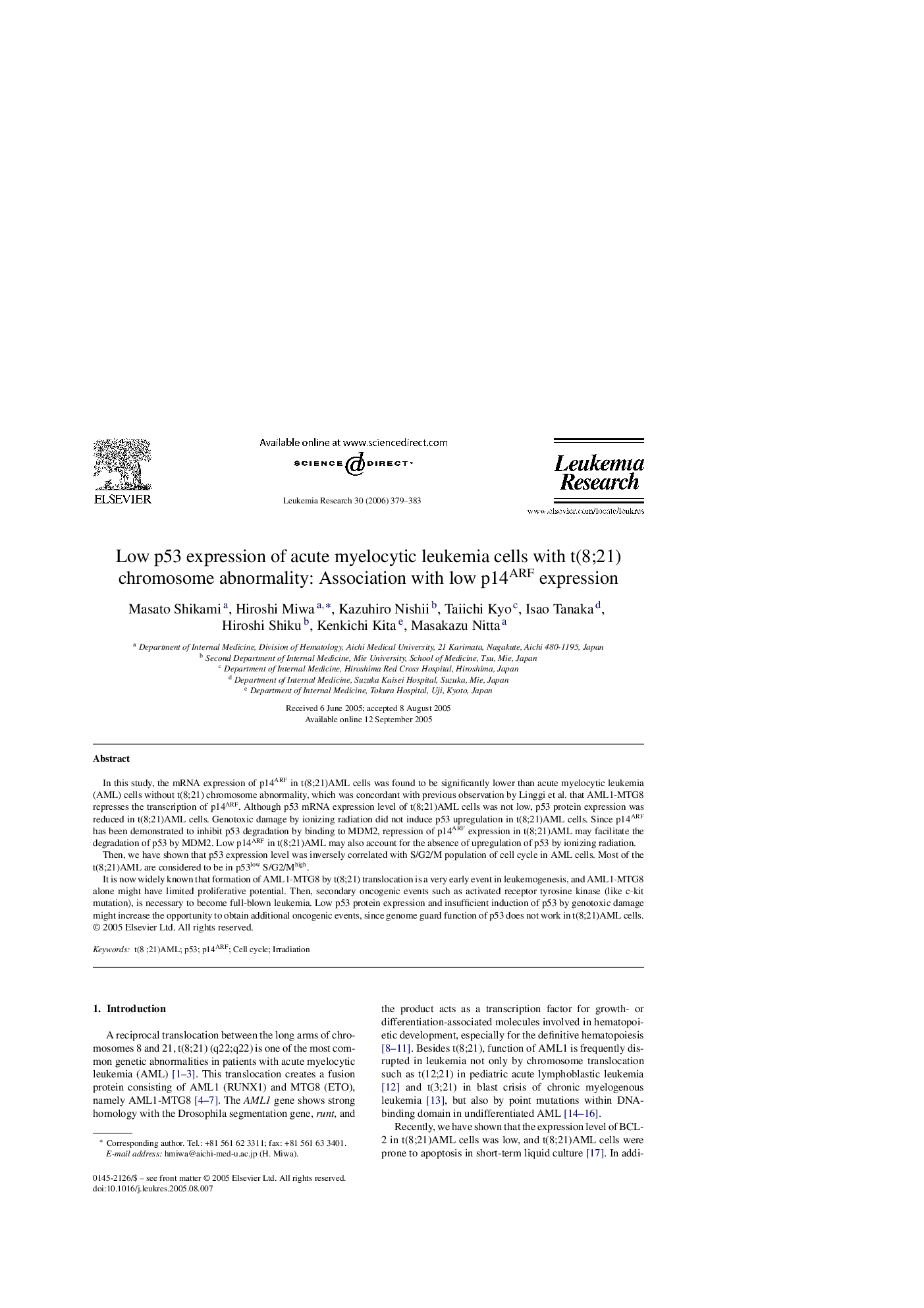| Article ID | Journal | Published Year | Pages | File Type |
|---|---|---|---|---|
| 2139973 | Leukemia Research | 2006 | 5 Pages |
In this study, the mRNA expression of p14ARF in t(8;21)AML cells was found to be significantly lower than acute myelocytic leukemia (AML) cells without t(8;21) chromosome abnormality, which was concordant with previous observation by Linggi et al. that AML1-MTG8 represses the transcription of p14ARF. Although p53 mRNA expression level of t(8;21)AML cells was not low, p53 protein expression was reduced in t(8;21)AML cells. Genotoxic damage by ionizing radiation did not induce p53 upregulation in t(8;21)AML cells. Since p14ARF has been demonstrated to inhibit p53 degradation by binding to MDM2, repression of p14ARF expression in t(8;21)AML may facilitate the degradation of p53 by MDM2. Low p14ARF in t(8;21)AML may also account for the absence of upregulation of p53 by ionizing radiation.Then, we have shown that p53 expression level was inversely correlated with S/G2/M population of cell cycle in AML cells. Most of the t(8;21)AML are considered to be in p53low S/G2/Mhigh.It is now widely known that formation of AML1-MTG8 by t(8;21) translocation is a very early event in leukemogenesis, and AML1-MTG8 alone might have limited proliferative potential. Then, secondary oncogenic events such as activated receptor tyrosine kinase (like c-kit mutation), is necessary to become full-blown leukemia. Low p53 protein expression and insufficient induction of p53 by genotoxic damage might increase the opportunity to obtain additional oncogenic events, since genome guard function of p53 does not work in t(8;21)AML cells.
